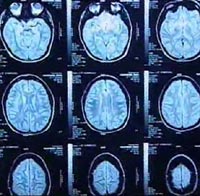Antioxidants are linked to heart disease
Danh Phuong
Everywhere it is thought that antioxidants are a very important protection against heart disease, but researchers at the University of Utah have discovered the level of an antioxidant's excess - reducing glutathione. - really contribute to the disease.
According to Ivor J. Benjamin, Medical Doctor, Christi T. Smith, Cardiologist, Head of Cardiology at the University of Medicine and the lead author of the study - The findings were published in the journal Bao stated that a group of drugs can be developed for treatment, even to prevent heart disease caused by ' inhibition of decline '.
According to Dr. Benjamin: The B-Crystalline protein alpha is considered to be an escort and direct molecular monitoring, helping other long protein strands bind together within the cells . When it does work, new cells produce the right amount of reduced glutathione, which is very beneficial for health. Unfortunately, when the gene that makes B-Crystalline alpha is mutated in humans, the protein spreads in an unsatisfactory way into aggregate blocks, a sign of distinguishing status in different internal organs, including whole heart. Meanwhile, reduced glutathione is produced in excess levels, damaging the heart. Eventually leads to a condition known as inhibition of decline.
 (Photo: cbc.ca) In an experimental study of rats with heart failure caused by cell mutant B-Crystallin alpha, Benjamin and colleagues at the University of Utah discovered a range of activity. An increase in the process of biochemical processes leads to high levels of glutathione in animals.
(Photo: cbc.ca) In an experimental study of rats with heart failure caused by cell mutant B-Crystallin alpha, Benjamin and colleagues at the University of Utah discovered a range of activity. An increase in the process of biochemical processes leads to high levels of glutathione in animals.
Glutathione, one of the body's most powerful antioxidants , is mainly regulated by complex G6PD enzymes . In order to establish the connection between impaired glutathione and heart failure, Bejamin combined the mice with B-Crystallin alpha mutant cells causing a high concentration of G6PD and g6PD-bearing mice at many levels. A lot lower. As a result, their offspring produce weakened glutathione at normal levels and heart failure has not developed.
Benjamin said: 'Lowering the level of weakened glutathione has dramatically changed the survival of these mice. Basically, we prevented them from heart failure. '
Heart disease, Alzheimer's, Parkinson's, and other deadly diseases are associated with oxidative inhibition, in which ' single electron ' molecules are produced in the reaction to take in oxygen. Single electrons move throughout the body, causing chemical reactions to damage proteins and make them form aggregate blocks. Many people use antioxidants to prevent heart disease and protein-gathering diseases, but according to Benjamin, there is still enough evidence to prove they work.
So far, people have not observed the inhibition of decline according to the evolution of the disease. Benjamin said: 'This is a case where there is an extremely good thing, our findings show that inhibition of decline ensures more thorough research.'
By lowering the level of weakened glutathione without altering this alpha-B-Crystallin-mutated gene, the study demonstrated that inhibition of suppression can be addressed. New drugs, targeted at genetic movements that cause problems.
'The field of western medicine does not appreciate the inhibition of inhibition and its effects on the disease,' he said. 'This belongs to the necessary balance in our cell environment, and it can have very serious consequences for treatments of heart disease and other serious disorders. '
- BPA resin is linked to heart disease
- New method of rapid detection of heart disease
- The relationship between blood type and disease
- People with HIV are more likely to develop heart disease
- The number of people dying from heart disease skyrocketed by dust and smoke
- Women are more likely to die from heart disease than men
- 8 basic signs of heart disease
- Walnuts help reduce the risk of cardiovascular disease
- Symptoms of heart disease in children
- Unusual habits easily cause heart disease
- 27 interesting facts about your heart
- 10 useful tips to prevent heart disease
 Green tea cleans teeth better than mouthwash?
Green tea cleans teeth better than mouthwash? Death kiss: This is why you should not let anyone kiss your baby's lips
Death kiss: This is why you should not let anyone kiss your baby's lips What is salmonellosis?
What is salmonellosis? Caution should be exercised when using aloe vera through eating and drinking
Caution should be exercised when using aloe vera through eating and drinking